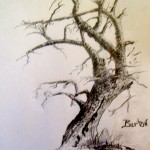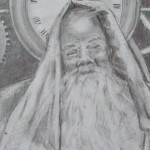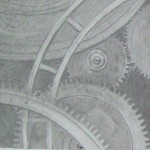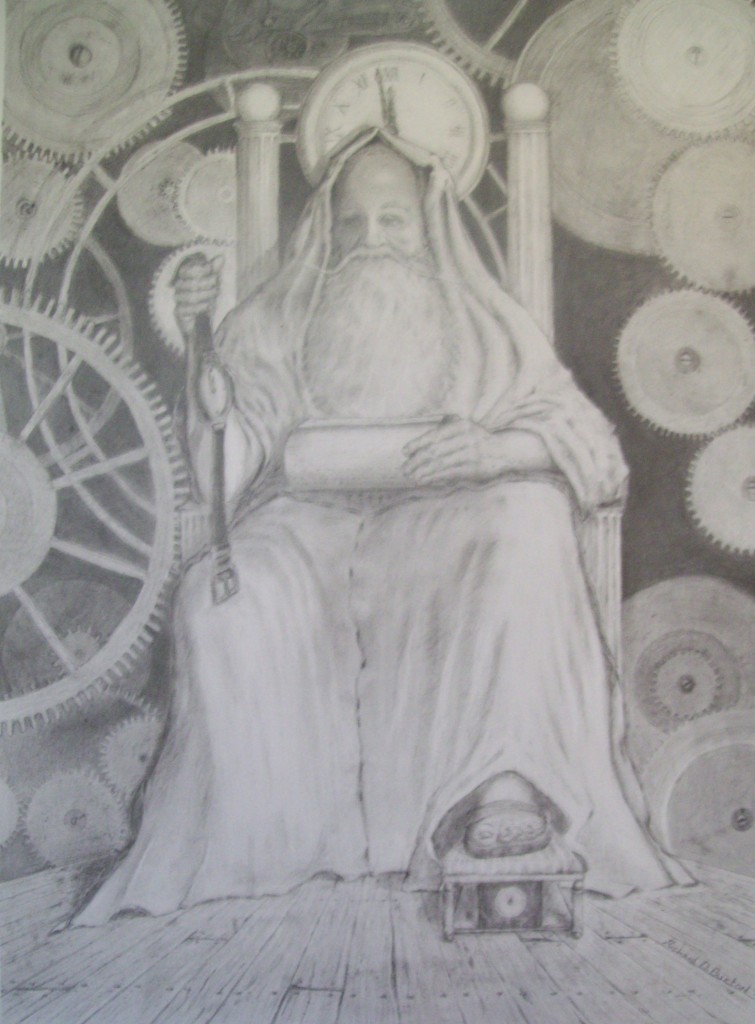
I’ve always been concerned about mastering tone when it came to graphite sketches and drawings. I have to constantly keep in mind the distinction between the “form” and the “field”. The “form” is the object, and the “field” is the area that surrounds it. Mastering light through the use of tone sometimes can be a little tricky. The simple drawing of the tree (left) works with light coming in from the right side of the painting and spins softly in and out through the edges of the bark. The major form is the tree itself, so in the simplicity of the drawing it was quite easy to master the tone of the drawing.

However, several practice studies were made of ‘Father Time’, before being able to settle on the final drawing. The one to the right was made in consideration of a future painting (which is yet to happen). I did complete a finished graphite drawing using the practice sketches, which came in very handy.

Keep in mind, we use edges of objects with lines. The variance of tone is not as important as the shape defined by the line which holds the framework of the drawing together. The defining lines need to be used in conjunction with tone and modulated to relate to the tonal values of the overall drawing. Below is the finished drawing, Grinding Gears of Time.

